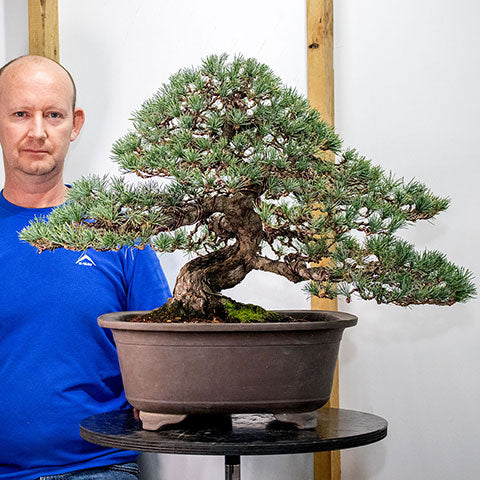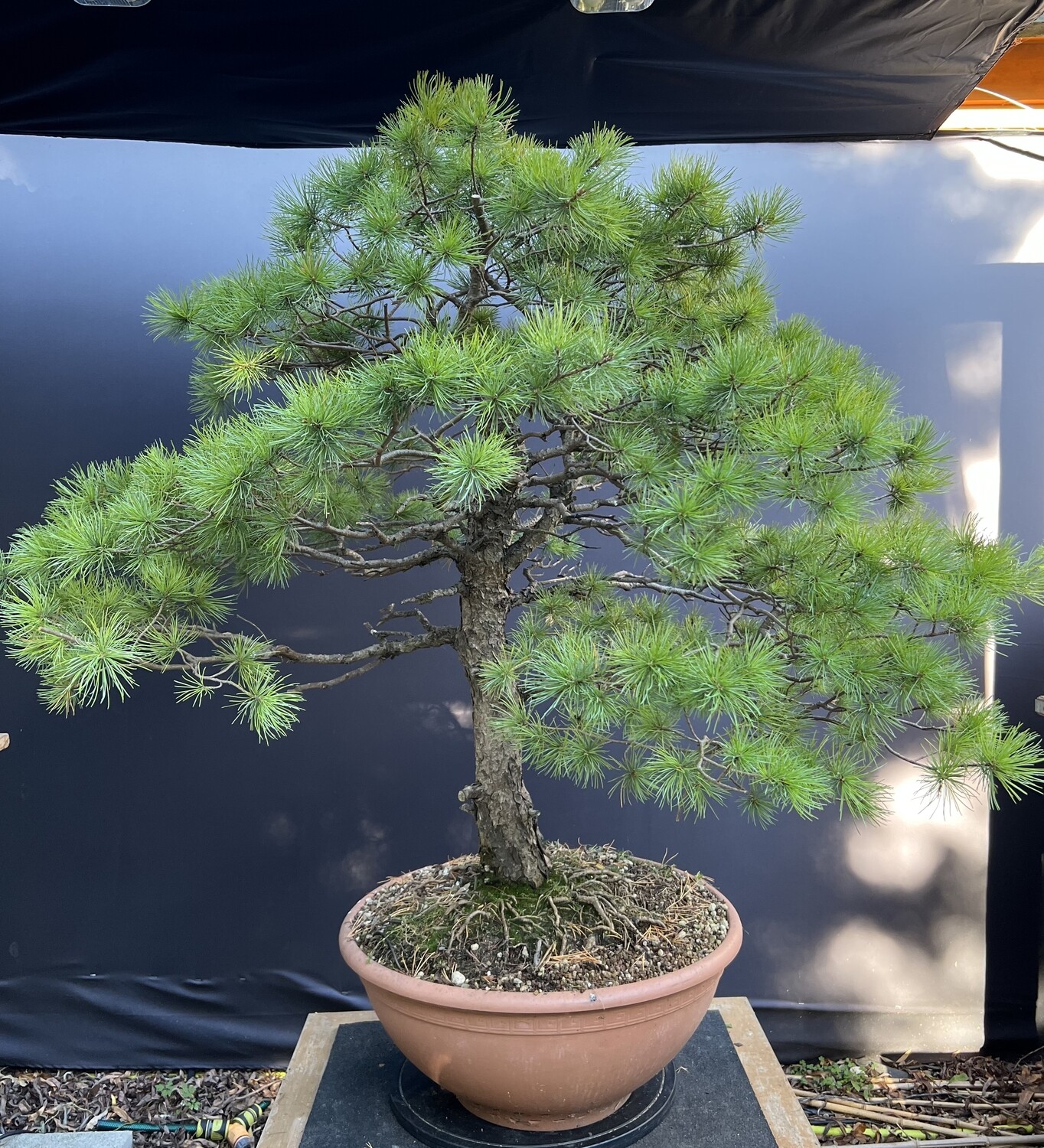The Japanese White Pine Bonsai Tree is a marvel of nature. It is admired by bonsai enthusiasts worldwide. This tree is known for its elegance and grace.
History of Japanese White Pine Bonsai
The Japanese White Pine, also known as Pinus parviflora, has a rich history. This tree has been cultivated for centuries in Japan. It is often found in traditional Japanese gardens.
Bonsai is an ancient art form. It originated in China over a thousand years ago. The Japanese adopted and refined it. Today, bonsai is a symbol of peace and harmony.
Characteristics of Japanese White Pine Bonsai
The Japanese White Pine is a hardy tree. It can survive in harsh conditions. This makes it perfect for bonsai.
- Needles: The tree has beautiful blue-green needles. They are soft and flexible.
- Bark: The bark is gray and becomes flaky with age.
- Shape: The tree has a natural, irregular shape. This makes it look like a miniature version of a full-sized pine.
How to Care for a Japanese White Pine Bonsai
Caring for a Japanese White Pine Bonsai is rewarding. Here are some tips to keep your tree healthy:
Watering
Watering is crucial for bonsai. The soil should be moist but not soggy. Check the soil daily. Water the tree when the top layer feels dry.
Light
Japanese White Pine Bonsai loves sunlight. Place it in a spot where it gets plenty of light. It needs at least six hours of sunlight daily.
Temperature And Humidity
This tree prefers cooler temperatures. It can tolerate frost but needs protection from extreme cold. Humidity should be moderate. Mist the tree occasionally to maintain humidity.
Soil
Well-draining soil is essential for bonsai. Use a mix of akadama, pumice, and lava rock. This ensures proper drainage and aeration.
Fertilizing
Fertilize your bonsai regularly. Use a balanced fertilizer during the growing season. Reduce feeding in winter.

Credit: www.bonsaitree.co.za
Pruning and Wiring
Pruning and wiring are vital in bonsai care. They help maintain the tree’s shape and size.
Pruning
Prune your bonsai in early spring. Remove dead or overgrown branches. This encourages new growth and maintains shape.
Wiring
Wiring helps shape the tree. Use aluminum or copper wire. Wrap the wire around the branches and gently bend them into the desired shape. Remove the wire after a few months to prevent damage.

Credit: bonsai4me.com
Repotting
Repotting is necessary for bonsai health. It prevents root-bound conditions and refreshes the soil.
When To Repot
Repot your Japanese White Pine every two to three years. Do this in early spring before new growth starts.
How To Repot
Remove the tree from its pot. Trim the roots by one-third. Replace the old soil with fresh bonsai soil. Replant the tree and water it well.
Pest and Disease Control
Pests and diseases can affect your bonsai. Regular inspection and proper care can prevent most issues.
Common Pests
Aphids, spider mites, and scale insects are common pests. Use insecticidal soap or neem oil to treat infestations.
Common Diseases
Fungal infections and root rot are common diseases. Ensure proper watering and good air circulation. Treat with fungicides if necessary.
Why Choose a Japanese White Pine Bonsai?
The Japanese White Pine Bonsai is a wonderful choice. It is beautiful and resilient. Here are some reasons why it is a favorite among enthusiasts:
- Beauty: The tree’s elegant shape and soft needles are captivating.
- Resilience: It can withstand harsh conditions, making it easier to care for.
- Symbolism: Bonsai represents peace, harmony, and balance. It is a living work of art.
Conclusion
The Japanese White Pine Bonsai Tree is a treasure. With proper care, it can thrive for many years. Enjoy the beauty and tranquility it brings to your life.
If you are new to bonsai, the Japanese White Pine is an excellent choice. It is a rewarding hobby that teaches patience and care. Start your bonsai journey today and experience the magic of this wonderful tree.

